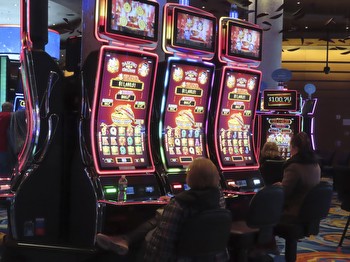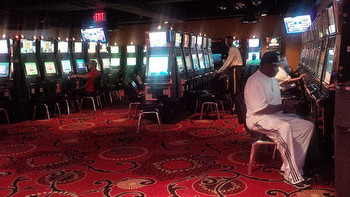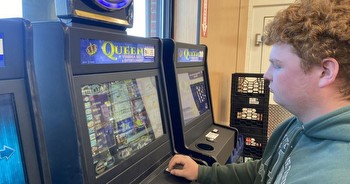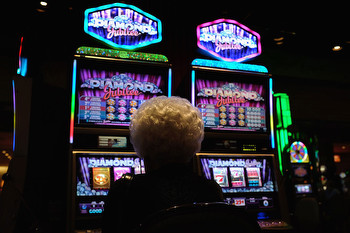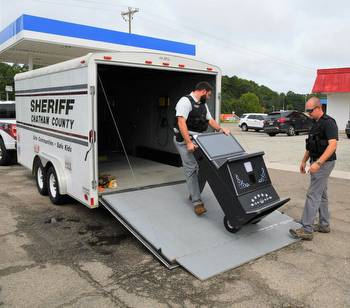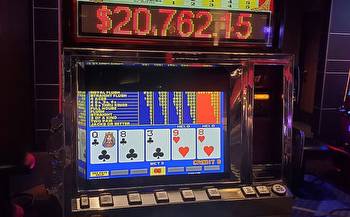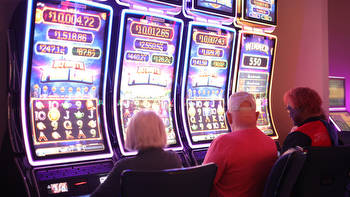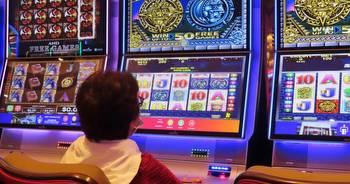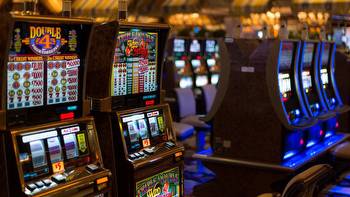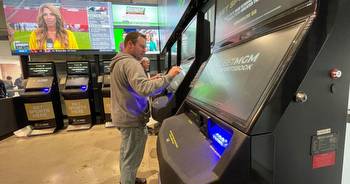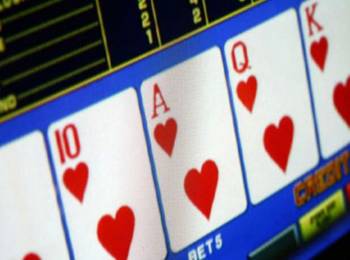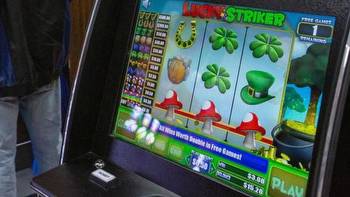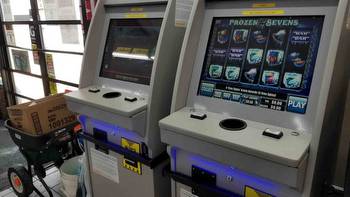Effort to legalize video gambling machines in North Carolina resumes
RALEIGH, N.C. (AP) — Amid optimism that sports betting could soon be authorized in North Carolina, a separate renewed effort to legalize and regulate video gambling machines in the state began Tuesday with a House committee debating the measure.
The legislation, which is largely identical to a 2021 bill that advanced then stalled, would provide significant revenue for higher education and attempt to eradicate what critics say is currently shadowy activity inside sweepstakes machine parlors.
Republican Rep. Harry Warren of Rowan County, the bill sponsor, repeated his pitch from 2021 that regulating the machines through the North Carolina State Lottery Commission would stamp out illegal activity. Despite efforts by law enforcement and lawmakers, video gambling and sweepstakes machines continue to sprout up as games are tweaked to get around prohibitions in state laws, he said.
Warren said over the years he’s heard estimates that between 60,000 and 100,000 illegal machines were operating in North Carolina.
“The real reason that these things flourish is because people play them,” Warren told the House Commerce Committee. “By restricting, regulating and reducing the supply, we can eliminate sweepstakes parlors and the seedy aspects of unregulated gambling, replacing it with a limited supply of gaming entertainment that fulfills the public demand in a safer, controlled environment and safer conditions.”
No vote was taken on the measure Tuesday after debate, and it’s unclear when the committee will return to it. For now it would have to pass four House committees before it could reach the House floor. It’s unclear how the Senate would consider the measure.
A separate sports wagering bill with dozens of cosponsors that passed the House in March will receive a Senate committee hearing on Wednesday.
Warren’s bill would direct the lottery commission to oversee the distribution of lawful machines in places with alcohol beverage licenses, such as bars, restaurants and convenience stores. Machine manufacturers and owners would be licensed, and retailers would contract with owners to set up machines. Patrons would be able to play games of chance and redeem winnings for cash.
The commission would contract for a central monitoring system to link permitted terminals, develop rules and conduct criminal checks of license applicants. State Alcohol Law Enforcement agents would also help carry out the law.
According to an evaluation of an earlier version of this year’s bill by General Assembly fiscal analysts, the state could take in $350 million annually by mid-2028 for education and law enforcement grants. The analysis envisioned 20,000 lawful machines in place at that time generating $1.1 billion in revenues in a year.
Gambling machine operators would receive 35% of those net terminal revenue while 25% would be allocated to retailers, which could have up to 10 machines operating.
Most of those state’s share of revenue would go to a new forgivable loan program for community college students. Both University of North Carolina system campuses historically known to educate minority students and private historically Black colleges in the state also would receive funds in this year’s bill.
As in the past, religious conservatives spoke against the measure, saying that state regulation won’t do away with illegal activity. And the state should have no business offering “false hope” with gambling that targets the poor, said the Rev. Mark Creech with the Christian Action League of North Carolina.
“Video lottery terminals are linked to the worst gambling harms,” Creech said. “So why would we say yes to a bill like this one?”
Lobbyists whose clients include those from the amusement and gaming machines industry spoke in favor of the measure, saying regulation would get rid of bad actors in pockets of the state and promote statewide uniformity in enforcing rules.
The North Carolina Sheriffs’ Association, which was opposed to Warren’s bill in 2021, is opposed to the current bill but is seeking amendments to address law enforcement concerns, Eddie Caldwell, the association’s executive vice president, said in a text later Tuesday. If the amendments are incorporated into the bill, then the association will take no position on the measure, he added.








